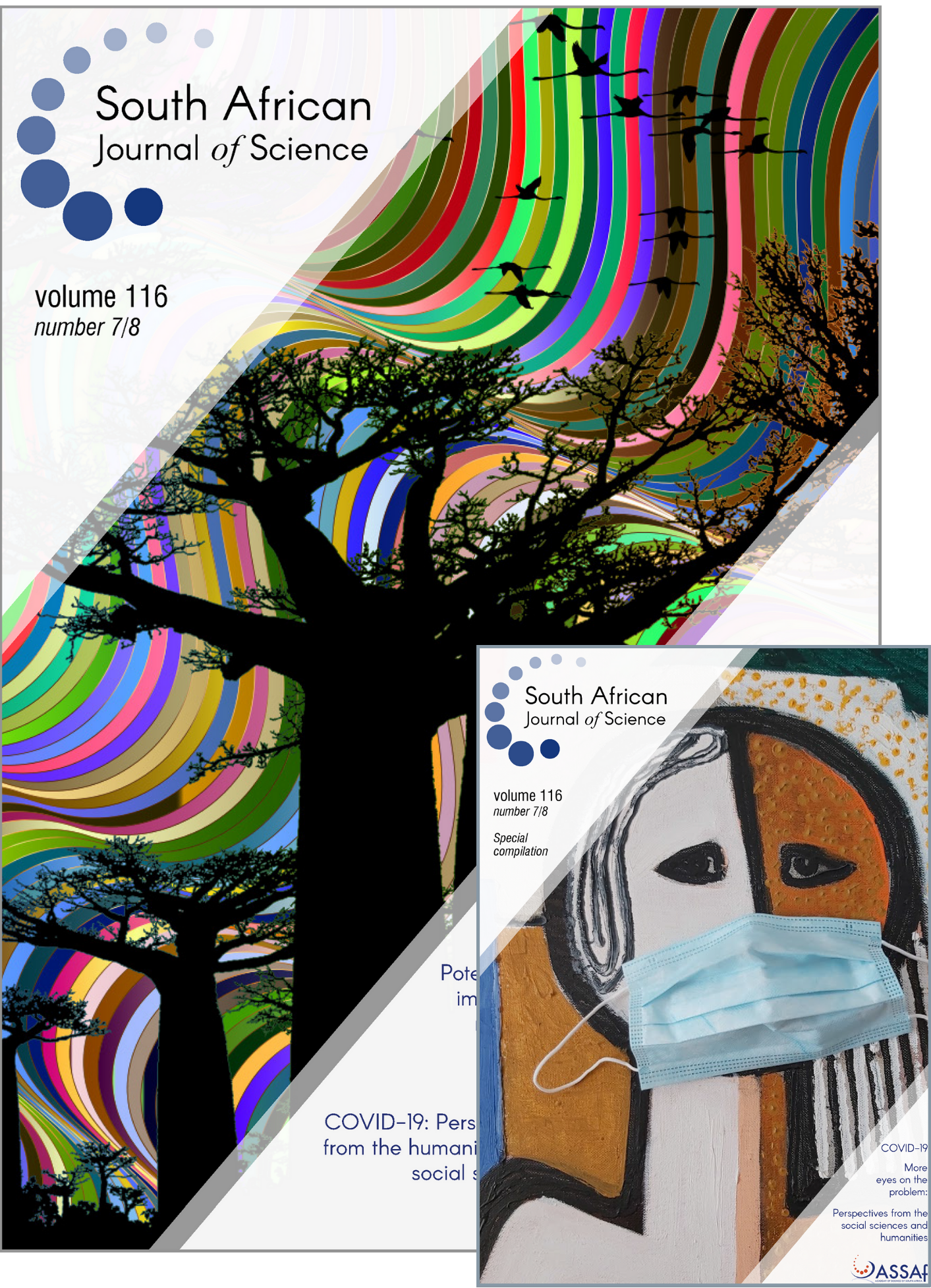Sequence-related amplified polymorphism markers – a tool for litchi breeders in Africa
DOI:
https://doi.org/10.17159/sajs.2020/7461Keywords:
SRAP markers, Litchi chinensis, genetic diversity, molecular characterisation, plant breedingAbstract
Litchi represents an economically important crop in South Africa – however, the local industry is based on only five cultivars. In order to expand the gene pool and to extend the harvest season, new cultivars have been imported. Currently, cultivars are identified based on morphological characteristics, but these are not always reliable. Molecular markers provide a tool to supplement morphological characterisation, particularly in cases in which confusion exists. The present study reports on the application of sequence-related amplified polymorphism (SRAP) markers in litchi for assessment of genetic relationships and molecular characterisation. The results provide evidence for separation of cultivars based on maturation period and fruit characteristics. The SRAP markers provide a tool for molecular characterisation that can be readily used by researchers with limited budgets, which is common in many developing countries.
Significance:
- We report on the application of SRAP markers as a tool for litchi breeders in resource constrained countries.
- The tested molecular markers allowed for genotyping (molecular characterisation) of litchi cultivars and selections.
- The markers also revealed relationships between genetic and morphological (phenotypic) characteristics.
Published
Issue
Section
License

All articles are published under a Creative Commons Attribution 4.0 International Licence
Copyright is retained by the authors. Readers are welcome to reproduce, share and adapt the content without permission provided the source is attributed.
Disclaimer: The publisher and editors accept no responsibility for statements made by the authors
How to Cite
- Abstract 646
- PDF 530
- EPUB 215
- XML 374












.png)